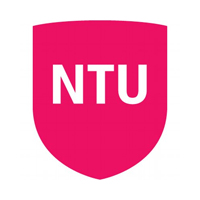fees waived
Electronic and Electrical Engineering, BEng (Hons), with industry placement
Nottingham Trent University, United Kingdom
Subject ranking
UK / The Times 24th
UK / CUG 30th
UK / Guardian 59th
Costs
food & rentS$16.8K / year
Entry requirements
Scholarships
Limited quantity
Limited quantity
Limited quantity
Information
Code
Intakes
Programmes
Information
Duration
2028
It’s impossible to imagine a world without electronic and electrical engineering. It covers everything from tiny integrated circuits in household items and mobile phones, to the large-scale utilities that power our homes. The industry is fast paced and rapidly changing with a focus on renewable and sustainable energy sources. An electronic and electrical degree from NTU can put you are the forefront of this exciting technological revolution by providing the skills and knowledge needed to be a great engineer. You’ll learn in our new Engineering building – designed to give you access to the latest equipment and facilities you’ll need to become a professional engineer. Using our electronics workshops and rooftop lab, you’ll develop the skills employers are looking for.Accredited by the Institution of Engineering and Technology (IET) on behalf of the Engineering Council for the purposes of fully meeting the academic requirement for registration as an Incorporated Engineer and partly meeting the academic requirement for registration as a Chartered Engineer.This course is recognised by CDIO, a framework that has a project based learning approach. This framework stresses engineering fundamentals set in the context of Conceiving — Designing — Implementing — Operating (CDIO) real-world systems and products. The framework is dedicated to providing students with their initial grounding in engineering through live projects.Find out more: https://www.ntu.ac.uk/course/science-and-technology/ug/beng-hons-electronic-electrical-engineering
A local representative of Nottingham Trent University in Singapore is available online to assist you with enquiries about this course.

